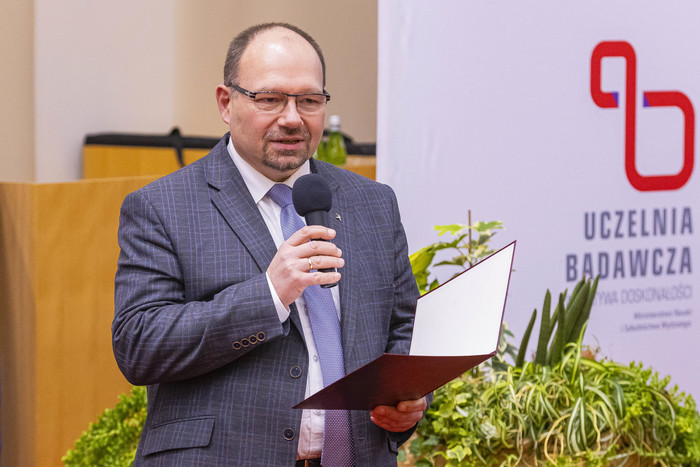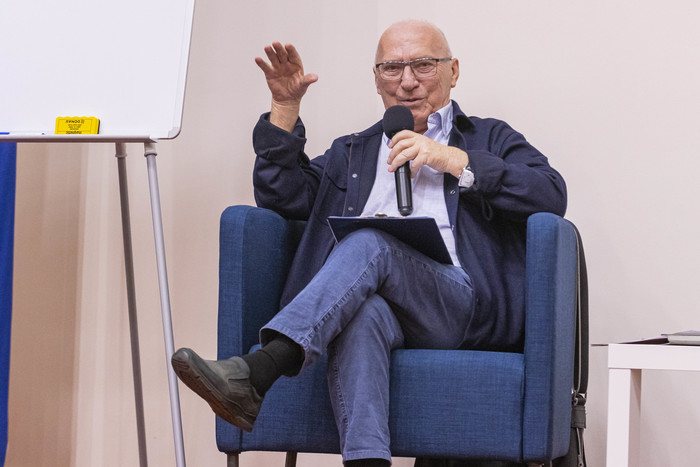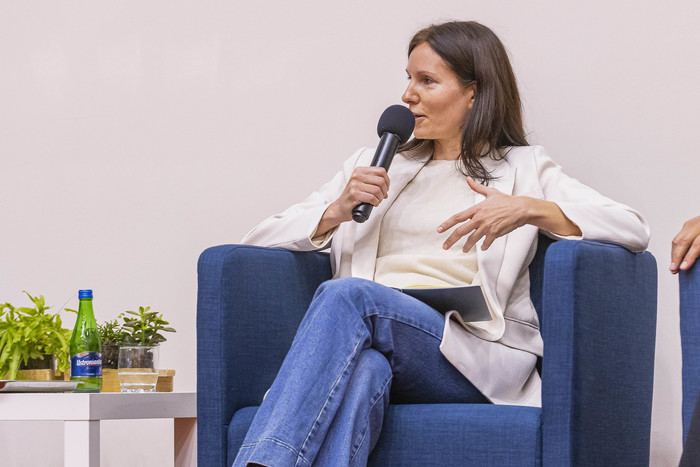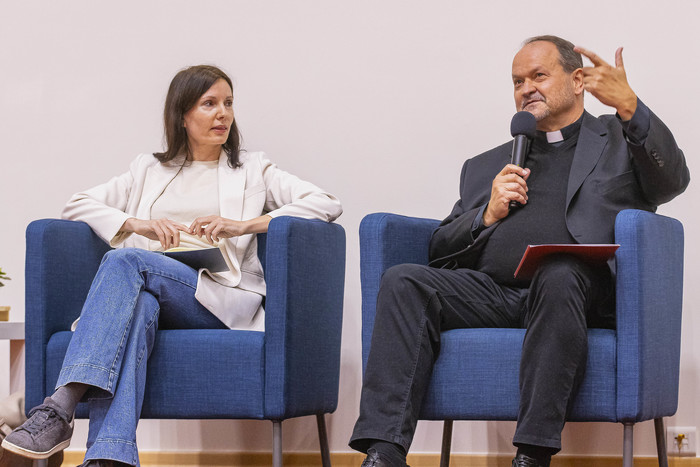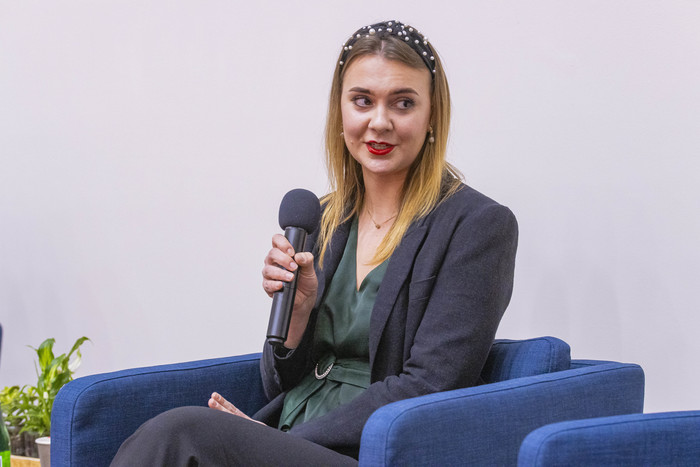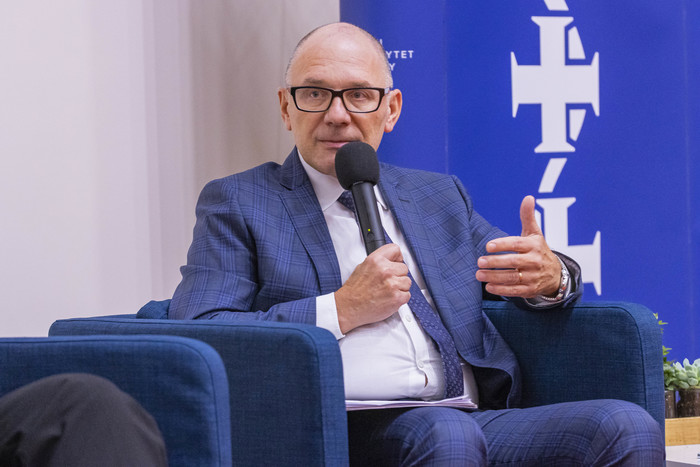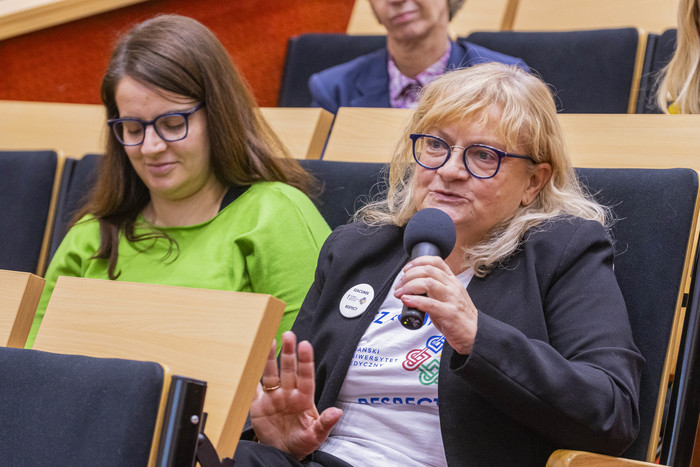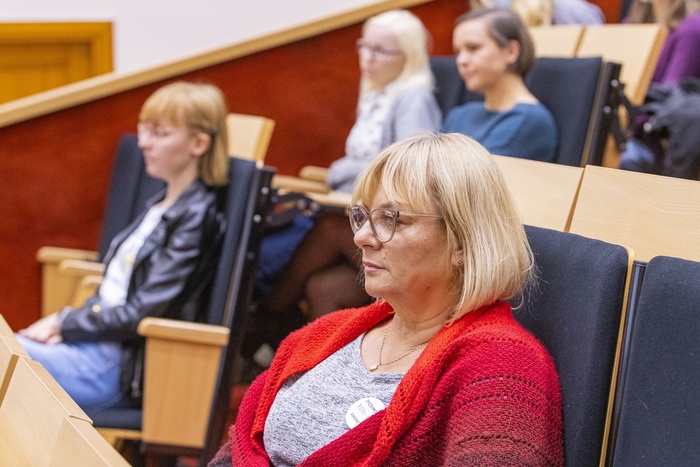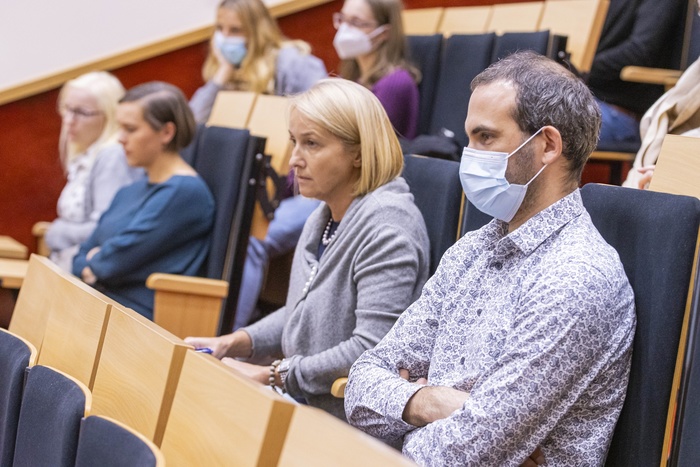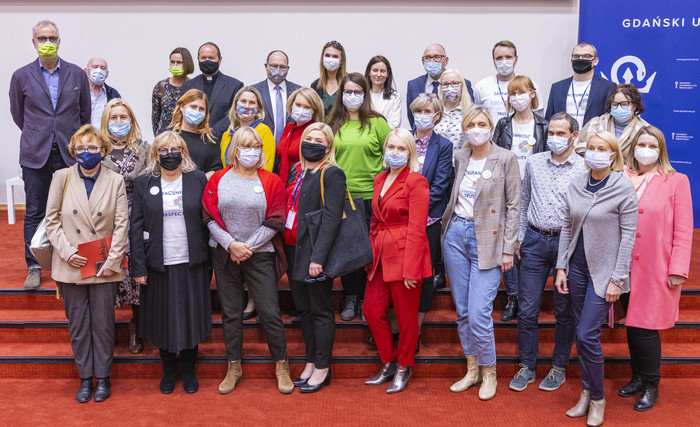The university panel meeting crowning the educational and information campaign entitled Kultura Szacunku / Culture of Respect was held on 18th of October 2021 at the Medical University of Gdańsk
The following people took part in the debate on respect:
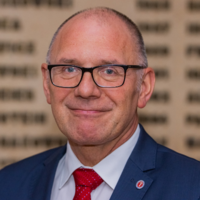 |
Prof. Jacek Bigda | Vice-Rector for Development and Education of the MUG; |
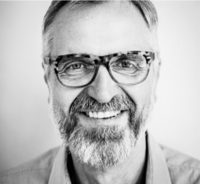 |
Mr. Dariusz Bugalski – moderator | author of the podcast K3. About the Good Life, academic lecturer in the field of effective communication; |
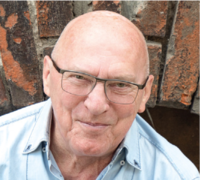 |
Prof. Wiesław Łukaszewski | an authority in the field of psychology, researcher of issues such as in the field of social psychology, lecturer and promoter of psychology; |
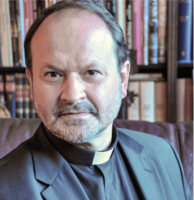 |
rev. Krzysztof Niedałtowski, Ph.D. | theologian and religious scholar, rector of the St John’s Church in Gdańsk, chaplain of artists, member of the Gdańsk Council for Equal Treatment of the second term (2021-2025); |
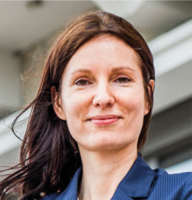 |
Marta Siciarek, M.A. | regional migration policy coordinator from the Marshal’s Office of the Pomeranian Voyvodeship, member of the human rights team by the European Union Agency for Fundamental Rights, co-founder and former president of the Immigrants Support Center in Gdańsk; |
 |
Ewa Maria Sokolewicz | 6th year Medicine – English Division student at the MUG; chairwoman of the ED Dermatology Student Scientific Society; co-author and co-organizer of the annual editions of the Shameless conference |
The debate was divided into thematic blocks:
- Status praesens: Respect in the life of an individual and community – various perspectives
- Diagnosis: deficiency of respect – sources and consequences of the problem
- Prognosis: chances and pitfalls, available resources and conditions of improvement
- Therapy: proposed recipes, key actions
The discussion was moderated by Mr. Dariusz Bugalski.
We invite you to read the summary of the event below!
In the first round, the debaters presented their interpretations of respect related to their professional experiences.
According to Prof. Wiesław Łukaszewski, respect, in the most succinct sense, is openness to otherness, that is, the ability to take into account other people’s beliefs, not to succumb to them, but to take them into account, and not so much recognition that someone else is right, but that they can be right. Prof. Łukaszewski emphasized that the pillars of respect are personal freedom and the ability to tolerate diversity. Respect is an act of choice, an act of voluntary. No one can be forced to respect.
Marta Siciarek presented respect as a systemic ability to take account of other people’s values and recognize their rights and needs, expressed in efficient support, assistance and social inclusion procedures. Ms. Siciarek emphasized the need to create such institutional mechanisms for the integration of refugees and migrants, which make help and support become part of the social system and are implemented so automatically that they become obvious and, in a way, invisible.
Rev. Krzysztof Niedałtowski, Ph.D. presented respect in relationships between people as an attitude in which the priority is not to determine who is right, or even less to impose on another person or group his point of view, his values and customs as the only right one, but the pursuit of good. This is a difficult ethical issue, requiring intellectual effort, self-discipline, and a certain humility, and therefore not easy. However, this priority of good can help to maintain openness and sensitivity to the views, values and emotions of another person and prevent harmful domination or even exclusion of others from the fullness of social life.
Ewa Maria Sokolewicz pointed to self-respect as a necessary condition for respecting others, and also to the fact that in some situations, respect pushes the realization of some other important values and rights, such as equality, to the background.
In his speech, Prof. Jacek Bigda emphasized the importance and role of respect for providing all members of the academic community with appropriate conditions for teaching and learning in conditions of progressing internationalization and exposure to cultural, religious and moral diversity. Prof. Bigda also pointed out, that in the context of a medical university, it should be noted that firstly: the work of medics involves contact with sick and suffering people, which requires a special attitude of respect towards patients and, through the teacher-student relationship, transfers patterns of desired behavior to the younger generation and secondly: in medical professions it is necessary to work harmoniously in a team of people who not only have the appropriate knowledge and skills, but also treat each other with respect, trust and kindness.
The round devoted to the diagnosis of the deficit of respect, its sources and consequences, edited by Dariusz Bugalski, began by stating that the Polish reality is often dominated by the struggle for status, struggle for primacy, and the pursuit of domination. You can talk about it as a consequence of a kind of narcissism, which combines the belief in one’s own uniqueness with a constant need for praise and appreciation, as if in order to compensate for certain deficiencies and defects.
Prof. Łukaszewski, who has been looking for the sources of the deficit of respect in our social life in his research for many years, stated that the lack of respect in Polish conditions consists of several important factors:
- the mode of socialization based on submission and obedience;
- putting too much emphasis on liking as a condition for cooperation and respect;
- excessive tendency to focus on individual differences and to evaluate;
- narcissism, both individual and collective;
- language of violence – in everyday life, also in the media and in public debate, there are numerous examples of the words of domination and contempt instead of more precise expressions free from violence, describing the situation of victory of argumentation, advantage of competences, etc.;
- competition as a fundamental way of organizing social life – where there is competition, one wins and the rest loses – winners are not liked and losers are not respected.
In turn, Marta Siciarek emphasized that the aspect of competition and domination is very important and constitutes a challenge in the context of majority-minority relations, e.g. host-migrants/refugees. She also drew attention to the need to perceive every human being, and in the context of her experiences, especially refugees and migrants, as having inalienable human rights. Seen from this point of view, any action to help and integrate minority representatives must not appear as optional acts of charity, but as natural steps ensuring that people of equal dignity fully enjoy their rights – a movement of paradigm from aid to rights.
Speaking about the sources of the respect deficit, Rev. Krzysztof Niedałtowski, Ph.D. drew attention to the importance of ethics in shaping attitudes and behaviors based on respect. He pointed out the key difference between universal and ethnocentric (tribal) ethics, the application of which is a community leads to favoring one’s own and to discriminating and despising the stranger or the different. Rev. Niedałtowski, Ph.D. was also critical of the widespread tendency in Polish society (including the Catholic Church in Poland) to divide into mutually opposing parties, as well as of the real, too often negative role of the Polish Catholic Church in shaping the attitudes and behavior of a large part of Polish society, taking into account, among others, the issue of religious education, which is a major source of problems in the development of the Catholic Church. This includes the issue of religious education, which currently does not promote knowledge of other faiths than Catholicism and openness to other religions, cultures, and customs, despite the universal message of the Gospel.
In this round, Ms. Ewa Maria Sokolewicz raised two important issues: 1) the display of disrespect by some students towards their peers, expressed mainly in the verbal layer with the use of contemptuous terms, and 2) the widespread lack of reaction from witnesses of such behavior. Two questions arise here: why the representatives of the majority of students present discriminatory and humiliating behaviors and why do so few of them decide to express their objection to the inappropriate behavior of their colleagues?
Prof. Jacek Bigda expressed his conviction that the deficit of respect observed in Polish society in general and in various communities, is a consequence of a lack of role models, and is also partly determined by history because in a hierarchical society, such as Polish society has been throughout the centuries, there have always been “them” as a source of law, norms and rules, and the influence of these “them” has shaped priorities, values, behaviors, and manners. Shaping attitudes based on mutual respect is not fully served also by the new educational system in force in Poland, which is dominated not by cooperation but by rivalry. Meanwhile, e.g. in the medical environment, it is cooperation that is the necessary condition for effective action.
In the part devoted to possible remedies and prognosis for the future, the Moderator, Dariusz Bugalski, described the lack of respect as indicating a certain “puffery”, a certain pose, which de facto is supposed to cover complexes and deficiencies of those people who do not respect others. Prof. Łukaszewski explains this “pompousness” by the process of the rudeness of society. This process is progressing because it turns out to be effective. Brutality, rudeness, pride, and violence prove to be effective. Of course not in solving any important universal problems, but in solving immediate group problems. Prof. Łukaszewski also cited the results of research on the sense of being wronged among Poles. It turns out that 51% of respondents felt wronged by those who… have more. Another issue is trust. The dramatic results of global studies show that the level of social trust in Poland is the lowest in the world and 20 times lower than in Denmark. As a “remedy” for this lack of trust, people adopt the attitude of a controller who enforces obedience, which is associated with the belief that others need to be feared or at least respected. Ms. Siciarek, despite the results of the research, presented an optimistic point of view, indicating that there are many people and organizations effectively involved in activities to support and integrate minorities and newcomers, there are many ideas and projects that result in desirable changes both in the functioning of the system and in developing awareness and favorable attitudes of people towards these issues, and the best recipe for “bloating” is equality, or a partnership approach to other people, as well as education shaping inclusive attitudes and awareness of the rights of all people. An important resource and source of hope is something that very many people have – a sense of decency in their relationships with others, a sensitivity to the rights and needs of others.
Prof. Łukaszewski, in turn, referred to the results of research on respondents’ perception of similarities and differences between people and stressed the need to actively shape the tendency to perceive similarities between people. There are important benefits from such a focus on similarities:
- there is an increased willingness to help others,
- there is an increased propensity for empathy,
- there is increased sympathy toward others,
- there is an emerging ability to restrain aggression even when anger has already been aroused.
Making people aware of their similarities to other people dramatically reduces the level of prejudice against strangers. The problem is that we perceive differences quickly and automatically while perceiving and becoming aware of similarities requires reflection, deliberation, and thus intellectual effort, which is not an impulse but a conscious act. Some hope could be found, therefore, in such a conscious, purposeful, and long-term shaping of educational procedures, socialization, and even social circumstances, that they strengthen in people at every stage of development the awareness of our great similarity and the tendency to notice similarities, with all the beneficial consequences that stem from it.
Rev. Niedałtowski, Ph.D. presented his experiences from teaching religious studies in the seminary, including the sometimes deep prejudice against other faiths and religions, especially Islam. Fanatical attitudes are most often fueled by stereotypes built based on rudimentary knowledge, generalized perceptions, and a tendency to idealize one’s religion, which using similar criteria of evaluation could also appear as a vehicle of violence and aggression. In such conditions, raising awareness of similarities with representatives of other religions could be very helpful in disarming the load of resentment and sometimes even contempt for others. A source of optimism, according to the Rev. Niedałtowski, Ph.D. would be to take a new perspective and replace religion classes with classes of religious studies. This would help open the eyes and minds of people, not only children and youth, to the religious and cultural diversity of the world, which is subject to constant change, including migration processes.
Ms. Ewa Sokolewicz emphasized the need for educational and therapeutic support for children and youth, who increasingly suffer from a lack of self-acceptance, loneliness, and depression, which also affects their relationships with others. In his speech on possible ways towards a better future, Prof. Jacek Bigda pointed out the important role of the system of power, because power has many means at its disposal that can influence social behavior and attitudes, and the example – as always – comes from the top. In this context, electoral potential and people’s ability to make wise choices that protect the values that are important to us, including first of all the preservation of the primacy of human dignity over the dignity of one or another set of individuals gathered around an ideology, should be seen as a resource. As the second resource, Professor Bigda pointed to the education system at all levels, which – irrespective of its various persisting deficiencies and shortcomings – after the political transformation has gained a lot and developed a lot.
Audience members attending the live event also spoke. Grazyna Peszyńska-Sularz, V.M.D., Head of the Tri-City University Animal House Research Service Centre, expressed an opinion that although in building relationships based on respect, an important role can and should be played by education, the media, authorities at various levels as well as the church and non-governmental organizations, but the key is the involvement of individuals, each person in treating others (not only people) with respect, generating some good, giving others an example of ethical behavior and sharing with others the knowledge that they have gained, which can help create a better reality. Ewa Sokolewicz shared her reflection that an important element that unites all people is their difficult experiences, their traumas, and scars, and that is why she suggested adding to the list the non-existent word “scariness” which means closeness to one’s neighbor, who, after all, just like us, experiences hardships and suffering in life, and just like us needs respect, understanding, and acceptance. The list of “therapies” also includes the postulate of courage to be a pioneer and propagator of such attitudes of sensitivity and respect, even if the environment would perceive the behavior and actions of such a person as “strange” or deviate from the generally accepted average. As a key element of the therapy, Prof. Łukaszewski chose the previously mentioned greater focus – both in individual relations and in education and public life – on emphasizing similarities between people, while Ms. Siciarek emphasized the importance of learning, implementing recommendations, building a system, and developing procedures for equality and social inclusion. Rev. Krzysztof Niedałtowski, Ph.D. proposed curiosity as an element of therapy. Curiosity, which means an active openness to what is new and different and leads to a deeper understanding of the world, people, their customs, and thus facilitating seeing similarities between people, alleviating fears and anxieties, and increasing respect and trust. Prof. Jacek Bigda proposed 3 elements to the list of “therapies”: 1) individual openness to difference; 2) patterns of behavior and conduct promoted socially, and 3) law – adequate, wise, and consistently applied to provide a solid foundation and framework for desirable attitudes, necessarily without tolerance for its non-application, which is currently a problem.
The Moderator of the debate, Mr. Dariusz Bugalski, proposed to add to the list of “therapies” the slogan “It is possible”, which is not only supposed to be an expression of belief or conviction that efforts for respect between people and more broadly in social life can bring the desired result but also to state the fact that good interactions between people based on respect, equality, kindness, and understanding, as well as harmonious cooperation for the common good existed in the past, exist now and – if we take care of it – will exist also in the future.
Mr. Bugalski summed up the debate with a quote from Janusz Korczak’s “Little Review” in which one reconciliation, the settling of anger between two boys, is seen not only as their private matter but as a reduction of all feuds in this school, in Warsaw, in Poland, in Europe, in the whole world. So, thanks to the two boys, there is now less anger and more peace, reconciliation, and respect. May we be able to follow this path effectively.
In the end, on behalf of the organizers of the University Debate, the floor was taken by Jacek Kaczmarek, Ph.D. who thanked all the participants of the debate, as well as its co-organizers. In addition to words of thanks, the debaters received occasional packets with gifts from the Medical University of Gdańsk, which were handed out by Professor Jacek Bigda.
University Debate on Respect was the first in a series of university debates planned at the Medical University of Gdańsk, which will always concern topics important to the community of the MUG, as well as to the general public.
Author: Jacek Kaczmarek, Ph.D.
Photo Paweł Sudara/MUG
